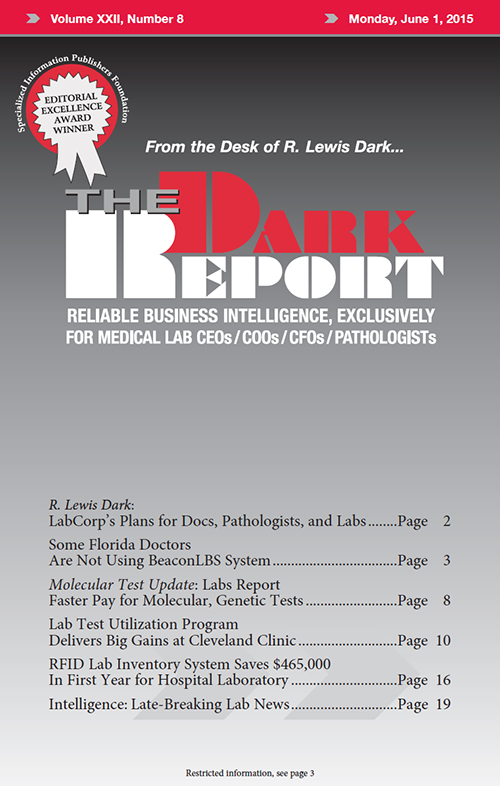DURING RECENT MONTHS, some labs are reporting improvement in how their claims for certain molecular and genetic tests are being reimbursed. This is progress from the financial crises experienced during 2013 for many labs performing molecular and genetic tests. Disruption in these payments was one of the clinical lab industry’s biggest stories during 2013. There …
To access this post, you must purchase The Dark Report.


